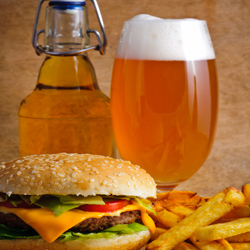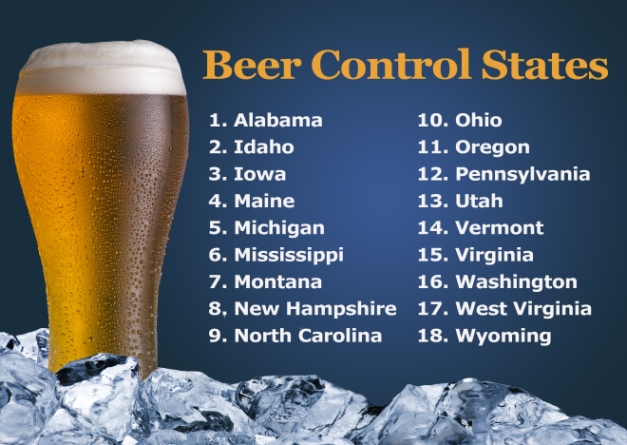Pass the Beer: Craft Brew Distribution Law in the U.S.
CalBar Certified Franchise & Distribution Law Specialist
by Barry Kurtz
818-907-3006
How do Americans get their stouts, ales, pilsners and porters? Beer distribution, no matter the variety, is funneled through a highly regulated three-tier system: brewers at the top, distributors take their cut in the middle, and retailers sell directly to the consumer.
 This system is designed to prevent pre-prohibition style marketing tactics, in which beer makers sold directly to brewer-owned taverns and other retailers, encouraging excessive consumption. The three-tier system also generates revenues for the states, facilitates state and local control over alcoholic beverages, and establishes a bit of temperance.
This system is designed to prevent pre-prohibition style marketing tactics, in which beer makers sold directly to brewer-owned taverns and other retailers, encouraging excessive consumption. The three-tier system also generates revenues for the states, facilitates state and local control over alcoholic beverages, and establishes a bit of temperance.
State statutory and regulatory schemes establishing the three-tier system vary substantially. But states generally fall into one of two categories: license states and control states.
Beer Licensing States
There are 32 license states. Under a typical licensing scheme, brewers who brew beer in another state, but who wish to sell it in the license state, must obtain a manufacture’s license, or register with a regulatory body, in advance of signing a distribution agreement with a distributor to distribute its beer.
While the licensing systems in the license states provide accountability and an additional source of revenue for those states, they are often convoluted and difficult to figure out. Determining which licenses are needed is no easy task.
Beer Control States
There are 18 control states. These have licensing requirements too. The difference between control states and license states is that at some point in the distribution process, control states obtain a direct interest in the revenues by taking an ownership stake as distributors or retailers of the product. These states are also known to exert greater control over the conditions of sale and promotion of alcohol within their borders.
 Source: Alcohol and Tobacco Tax and Trade Bureau
Source: Alcohol and Tobacco Tax and Trade Bureau
Beer Cyber States
Naturally, craft breweries are eyeing the internet as an alternative channel of distribution for their products.
Only 16 states allow brewers to distribute their products directly to retailers, with some restrictions and 16 states forbid the direct shipment of beer to their residents. States that do permit the direct shipment of beer to their residents typically require the shipper to be licensed as a brewer, distributor or retailer in its state of origin – and to obtain a direct shipper permit in each state into which the brewer wishes to sell products before shipping into these states.
Further complicating matters, shipping beer through the United States Postal Service is illegal; DHL refuses to ship beer per company policy; and Federal Express and United Parcel Service will typically only ship for properly licensed shippers (those holding a valid brewer, wholesaler, retailer license etc.), on a contract basis.
In a nutshell, while the direct shipment of beer represents a potential innovation for the beer distribution industry, the three-tier system is effectively keeping the beer industry stuck in the 1990’s.
However, beer drinking consumers are beginning to push state legislatures for change, urging them to among other things, provide craft brewers the same direct shipment rights that wine producers enjoy in a majority of the states, and reminding them that restraints on competition rarely benefit consumers.
All-in-all, one can expect that states will begin to open their craft brewers’ taps for the free-flow of beer to their constituents.
Barry Kurtz is the Chair of our Franchise & Distribution Practice Group.
